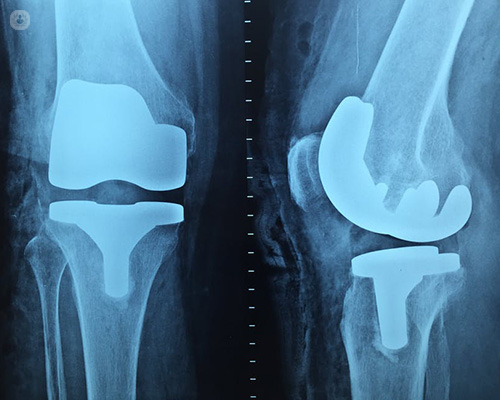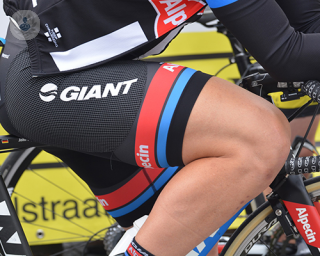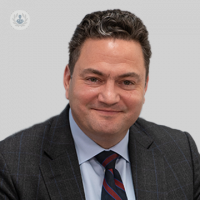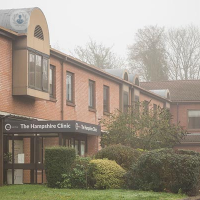Revision knee replacement
Professor Lee Jeys - Orthopaedic surgery
Created on: 03-06-2018
Updated on: 08-01-2023
Edited by: Conor Lynch
What is revision knee replacement surgery?
Revision knee replacement surgery revisits existing knee replacements, sometimes replacing previous implants. These implants, typically made out of plastic, are inserted between the shin bone and the thigh bone.

Why would you need revision knee replacement surgery?
Revision knee replacement surgery is sometimes needed because the implant can cause instability, possibly due to being placed incorrectly. This can cause the patient to feel wobbly whilst walking. Revision surgery is also needed when the implant is worn down, over time, and surgery swaps out the old implant for a new one. Surgery will also be needed if existing implants become detached from the bone.
What does revision knee replacement surgery involve?
Depending on the type of revision knee surgery being carried out, the procedure will differ. These procedures are carried out with regional or general anaesthetic. During revision knee replacement surgery, a surgeon replaces the old device with a new one.
Revision surgery is more complicated than a primary (or initial) total knee replacement (TKR) and entails many of the same risks. It is a longer, more complex procedure that requires extensive planning, and specialised implants and tools to achieve a good result.
In some cases, only one implant or component of the prosthesis has to be revised. Other times, all three components — femoral, tibial, and patellar — need to removed or replaced and the bone around the knee needs to be rebuilt with augments (metal pieces that substitute for missing bone) or bone graft. A revision procedure is typically more complex than the original knee replacement surgery because the surgeon must remove the original implant, which would have grown into the existing bone.
In addition, once the surgeon removes the prosthesis, there is less bone remaining. In some instances, a bone graft — transplanting a piece of bone transplanted from another part of the body or from a donor — might be required to support the new prosthesis.
What does recovery from a revision knee replacement procedure involve?
After surgery, patients will usually stay in hospital for between three to five days. Crutches are usually needed for two to three weeks following surgery, after which a walking stick can be used for support.
During recovery, physical therapy is recommended so that strength and movement is restored to the knee. Sufficient painkillers can be prescribed, along with blood-thinning medication to prevent blood clots forming. It is important to get moving as soon as possible after the revision knee surgery has been carried out.















